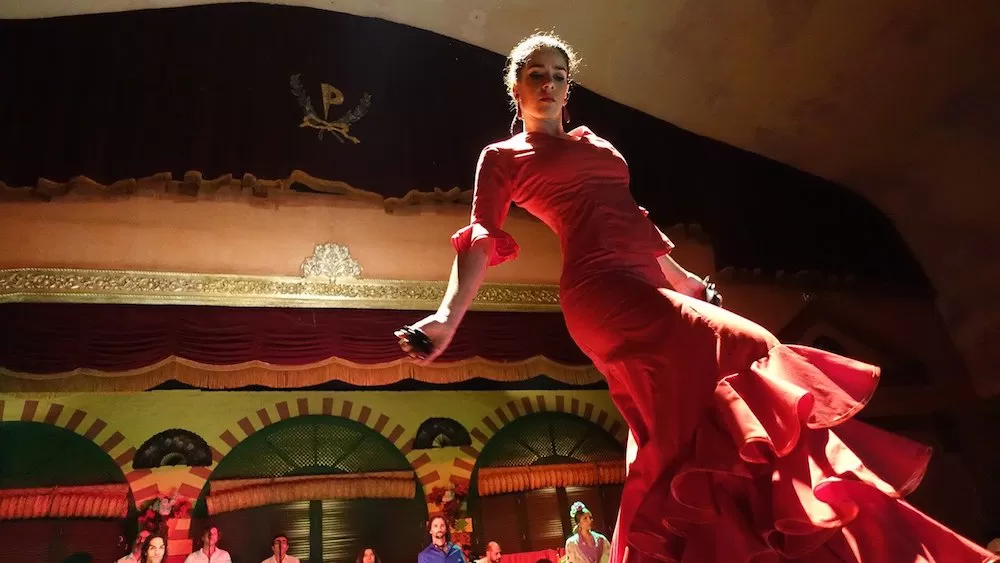
As passionate as flamenco is, you won't be able to get the feel of it in a large setting. Though doing so still works, there's nothing like seeing it performed just a few meters from you. That you're so close, the dancer can actually step on you if he.she gets carried away. And it's this sort of simple setting that 23 Robadores offers. Tucked away just behind Raval, it's not as glossy nor showy as the other places on this list. But it does, however, show off flamenco in a close, genuine, and real way. You just might get carried away with the spirit of flamenco here!
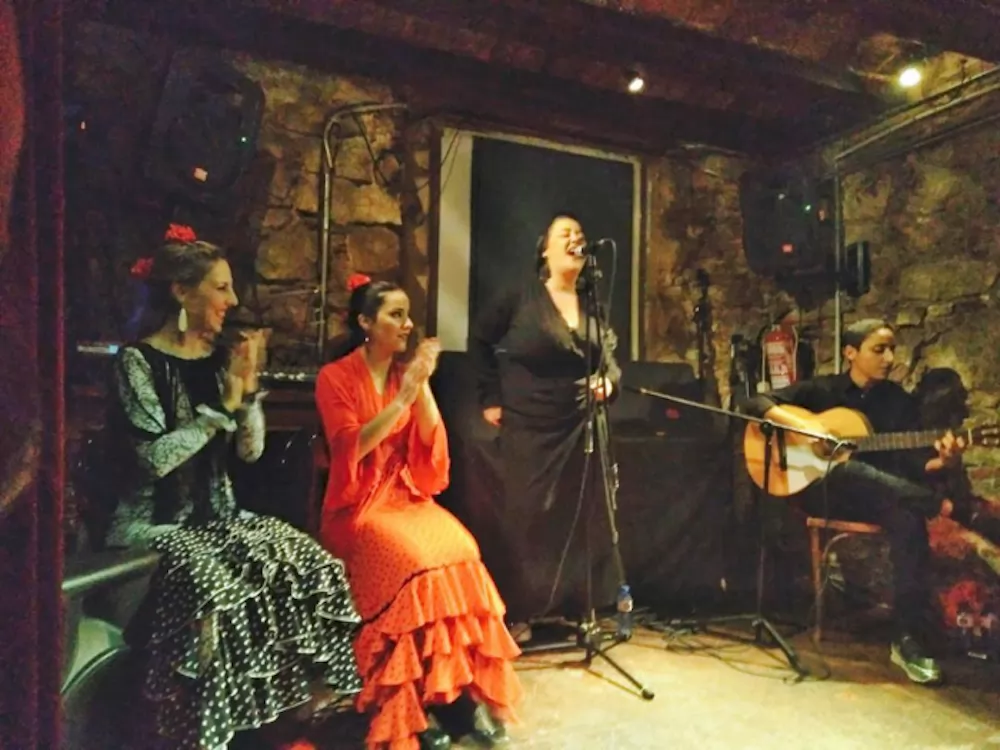
Source: 23 Robadores
Better than just performing in front of you, Barcelona Flamenco will actually teach you the art from. The institution offers courses and classes for those interested to learn more about the passionate art form. And it's through here where you'll really understand it. Only by attempting to have a go at it will you absorb the spirit of the art form and just how hot, heavy, and passionate it really is. What's also fascinating is that this place not only teaches dancing but also the music of the flamenco too. You get to choose which one you want to partake in, and both are equally important!
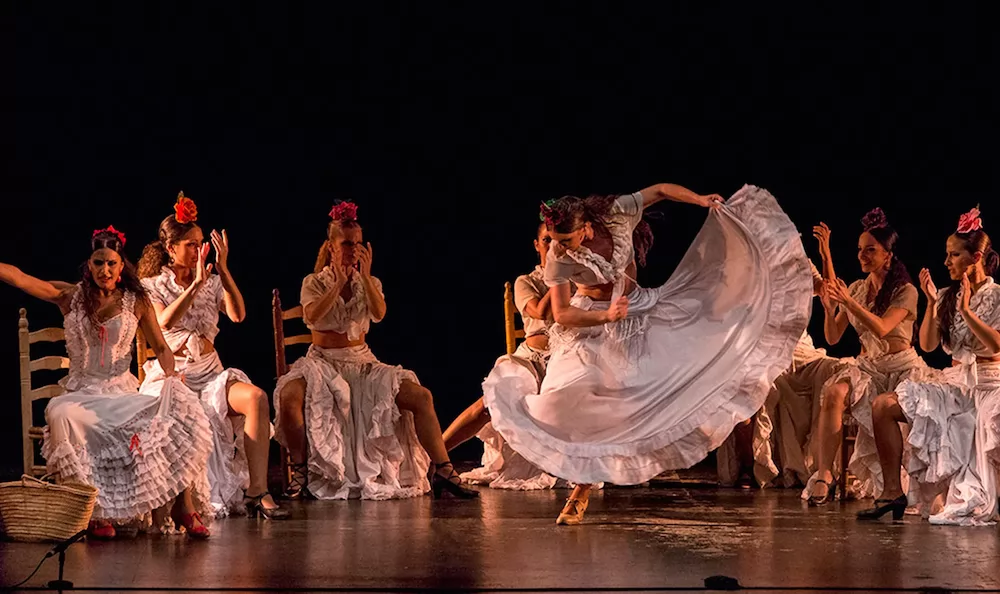
Source: Barcelona Flamenco
Since 1980, locals and residents alike have been learning about flamenco at the Escuela de Flamenco José de la Vega. Here, however, it's not like Barcelona Flamenco where the focus is equally divided into other parts of the art form. Though you can still learn about and to play the music of flamenco, the dance is held to a higher degree here. And there's nothing wrong with that! For many, flamenco is all about the passionate movement you see on stage. The intense emotion conveyed through each step, each clap, each turn, and each swivel.
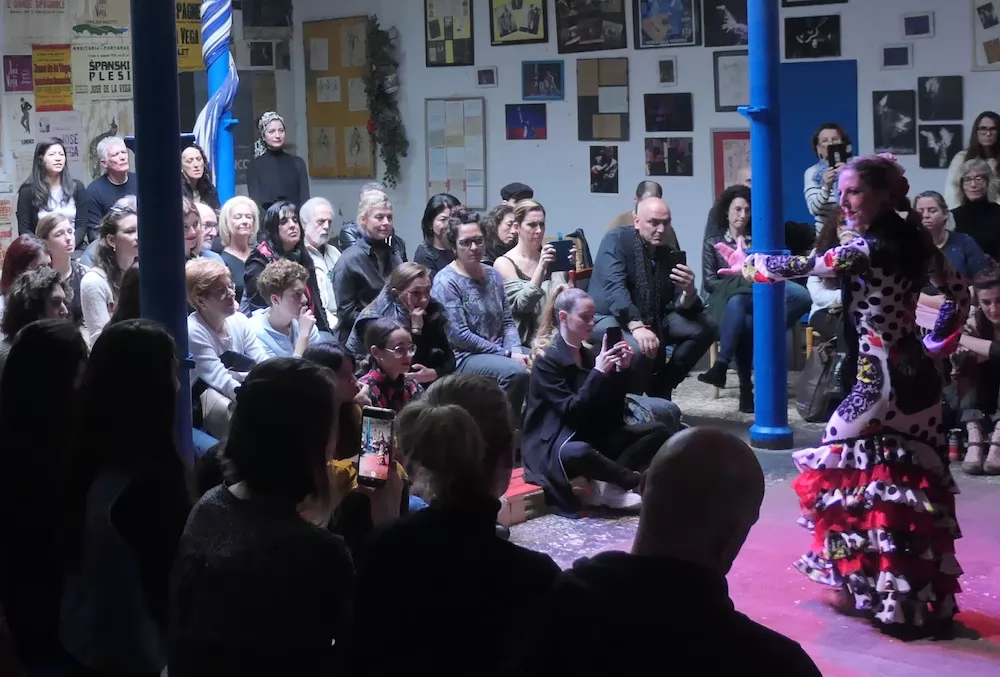
Source: Escuela de Flamenco José de la Vega
You can't fault the people of today—which may include you— to get distracted when learning and watching flamenco. More often than not, such places look as if you're in old Catalonia, dominated by gothic architecture with hints of Mediterranean decorating. You get lost at the beauty of the setting that you forget about the art from being performed in front of you. Not, however, at Los Tarantos! It's ironic that one of the oldest hubs for flamenco in Barcelona (it was established in 1963) is also one of the more modern-looking hotspots. Here, the sleek ambiance helps magnify the traditional and passionate art form of flamenco.
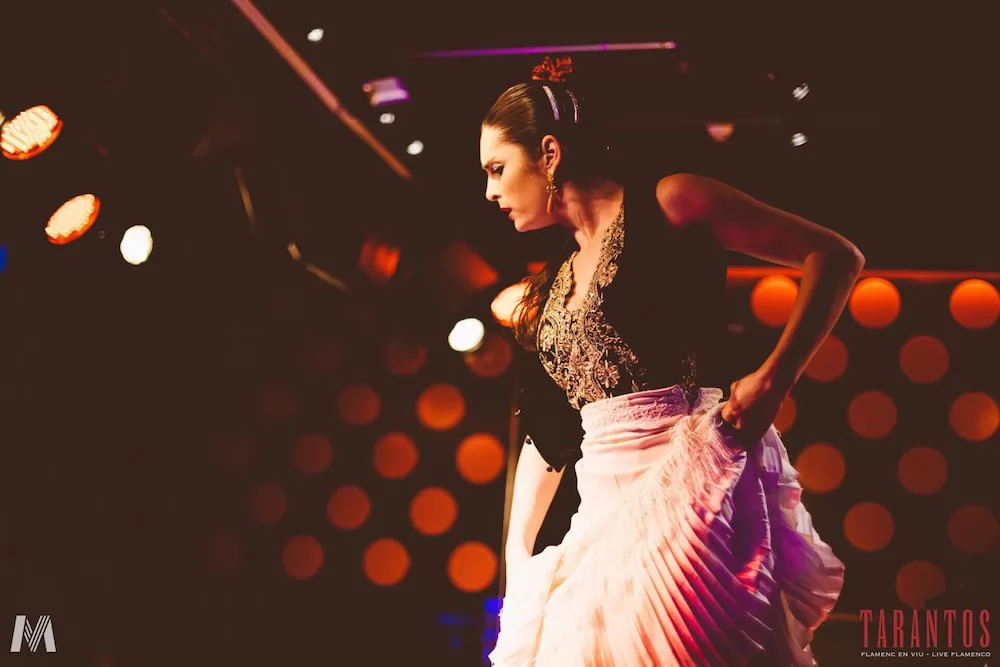
Source: Lose Torantos
The name alone should tell you just how dedicated to flamenco this place is. Established all the way back in the 1920s, the Palacio de Flamenco has long-served as one of Barcelona's meccas to the art form. Here, it's flamenco all day every day, all night every night! You can go here and see the magnificent performances of those who've taken on the passionate role of uplifting and preserving flamenco. Stages like an old-school theater, you'll get a perfect view of the art form and the experience is only like watching a play. Only, the emotions, the movements, and the spirit are much more intense!
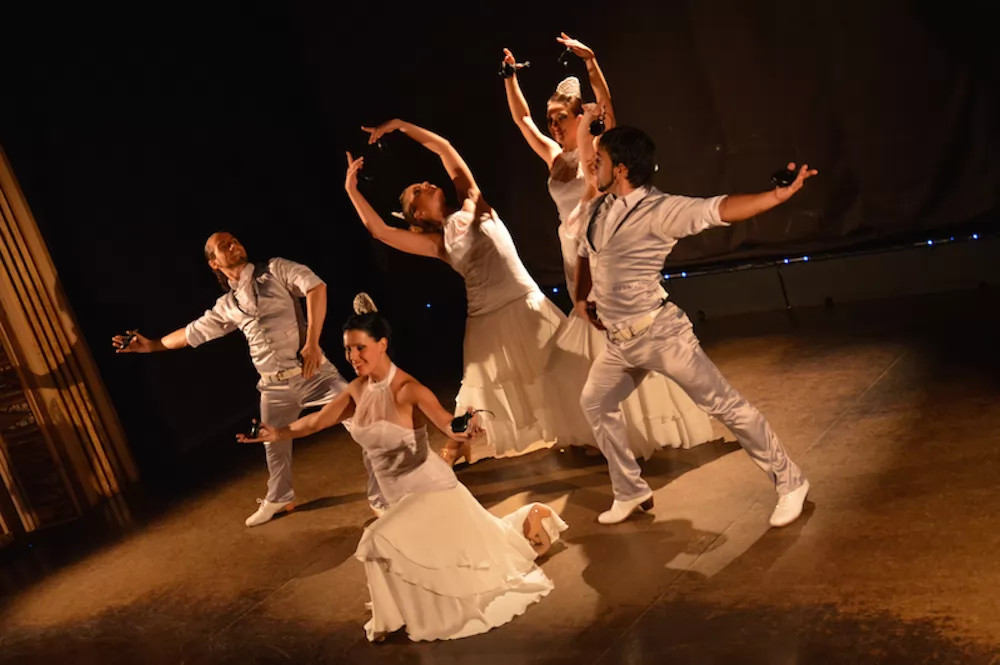
Source: Palacio del Flamenco
Want to take a trip down the history of Barcelona. At a time when flamenco was just flourishing in the Catalan city from the southern area of Andalucia? Do you want to witness what might have it been like watching a flamenco performance during the early years of the 20th-century? Look no further than at the Palau Dalmases. Located in no less than the city's Gothic Quarter, it's a perfect blend of authentic setting and traditional artistry that makes for quite the experience. It's here where you'll really get to see and feel the authentic spirit of flamenco.
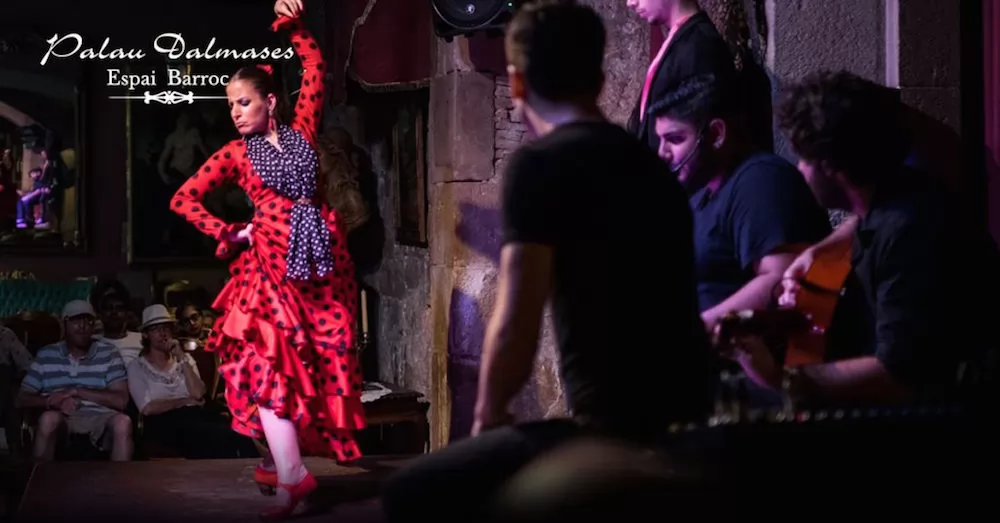
Source: Palau Dalmases
Usually, at least during the olden days, flamenco was only performed during celebrations. When a town would hold a fiesta, flamenco was there to liven things up and get the people going. Arguably, that tradition has lessened through the years. So much so that it really does become a spectacle when you see an actual fiesta with actual flamenco. But it is the spirit of that tradition that Tablao del Carmen achieves to uplift. In this slightly intimate place, you'll feel the energy of a fiesta come through with the intensity of flamenco. And, of course, it won't be complete without some delicious tapas and drinks!
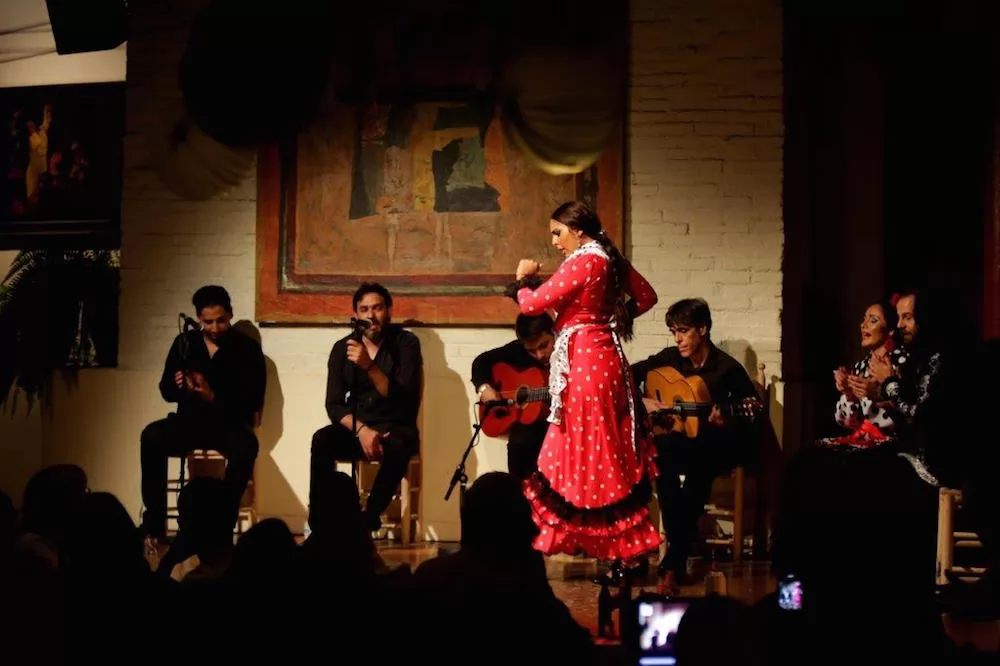
Source: Tablao de Carmen
Continuing on the intimacy is the Tablao Flamenco Cordobés. Becoming quite the hotspot for loads of tourists, this place never fails to put on a passionate show. But more than just the closeness of the setting and the drive of the performers, it's here where you'll really get a sense of the origins of flamenco. The art form began with Mediterranean gypsies, at times as a way to entertain other people. That's practically what they do here. This isn't to say, however, that the performers here are gypsies. But that they exhibit the same spirit as those exotic nomads into every performance here.
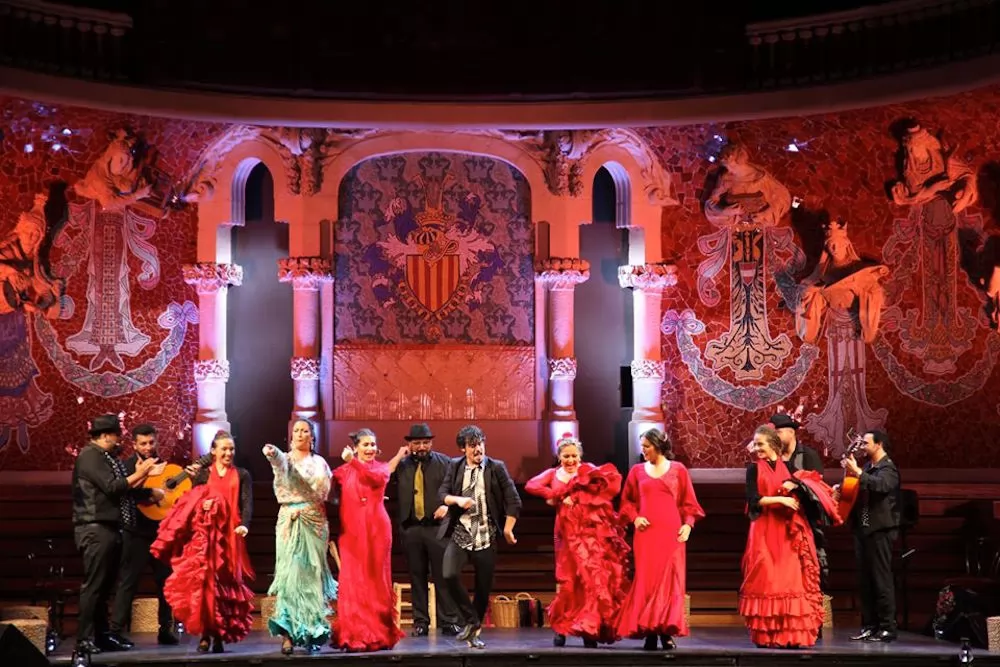
Source: Tablao Flamenco Cordobes Barcelona Facebook Page
Now that you've gotten a hold of the more intimate and authentic places, why not go for the jugular and grand a bit? At the famous Palau de la Música, flamenco is very much part of their culture here. Though the mostly use it for concerts and such, they often invite flamenco performers to give audiences a spicy taste of Spanish culture. And it's here where a lot of people—those who didn't necessarily care about flamenco—start getting into the art form. It's a more general and inviting venue for flamenco.
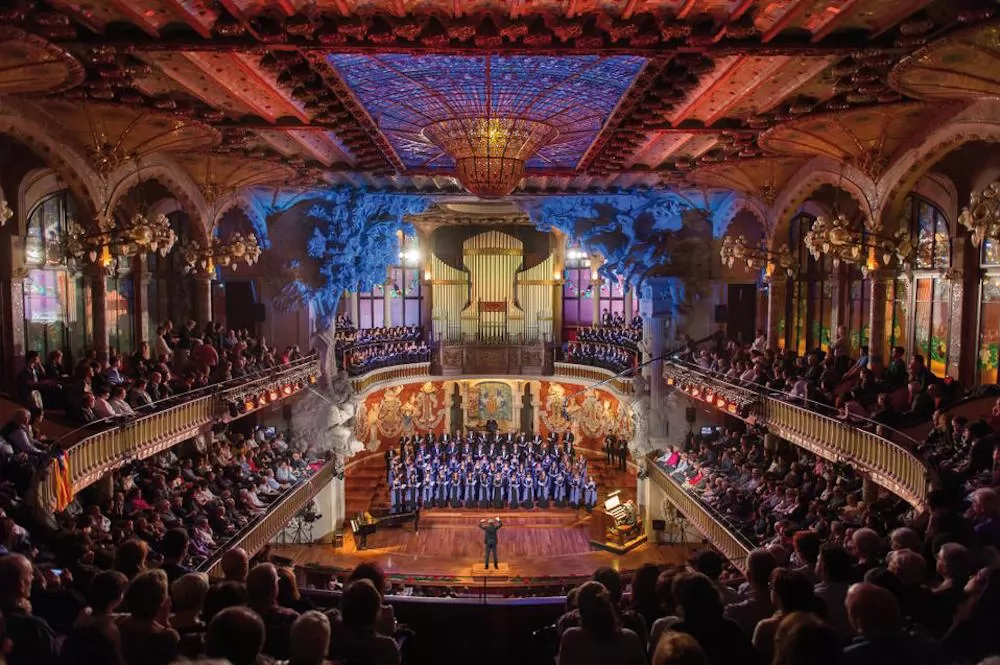
Source: Palau de la Música Catalana Facebook Page
If you haven't seen an authentic flamenco performance, did you really go to Barcelona? Arguably, no trip to this side of the country—nor this side of the world, no less!—is complete without witnessing and experiencing flamenco!